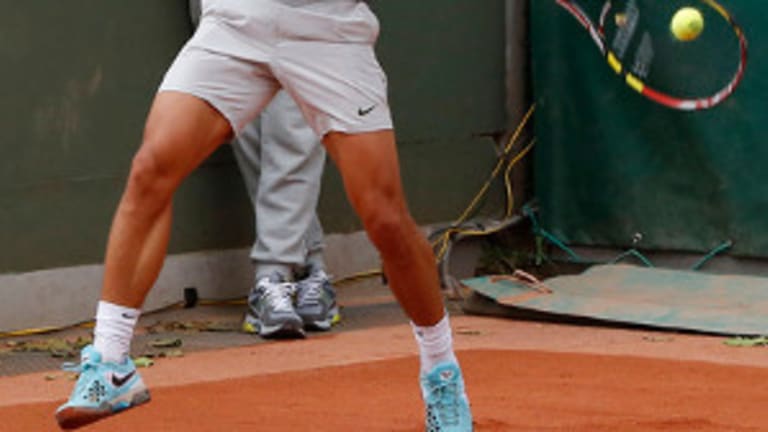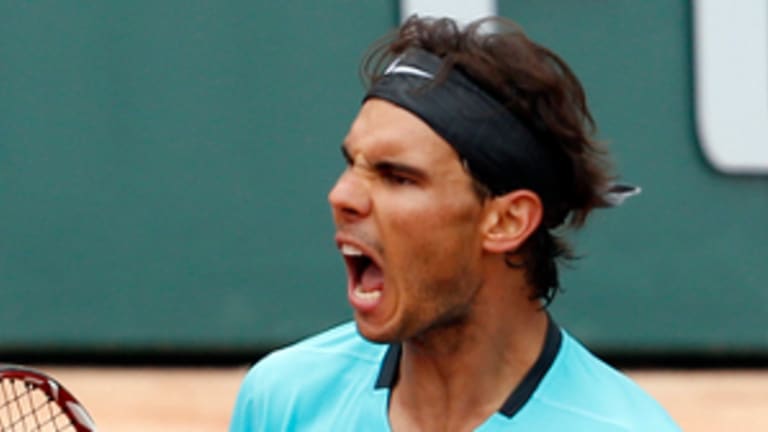Even without looking at the TV screen, you can tell a French Open audience by the particular sounds it makes. Most famous are the rising cries of “Allleezzzz!!!” from the peanut gallery, but more often the fans come together to make a distinctly unified and severe set of noises. The crowd in Paris may rise sharply in a burst of celebration, rouse itself into a storm of boos and whistles at a perceived injustice, or drop quickly into a sullen silence. Whether you love them for their passion or loathe them for their intrusiveness, no one makes the sport as dramatic as the audiences at Roland Garros. Only in Court Philippe Chatrier have I ever felt like a tennis match might turn into a full-fledged, chair-smashing, court-storming riot.
This morning, walking around my apartment, I could hear that familiar Chatrier roar from my television set before I turned to look at it. One point would be followed by sounds of joy and hope, the next by a disappointed hush—the French sound sad when things aren’t going their way. This time the crowd was obviously rooting hard for someone; I assumed it was one of their own. When I started watching, I was surprised to see that their flavor du jour was Dominic Thiem, a 20-year-old Austrian. How many people in the audience had seen or heard of Thiem before today? No matter, they were firmly on his bandwagon. It's understandable. The kid, as his opponent would say later, “has everything.”
But while they may have liked Thiem’s one-handed backhand, that wasn’t the biggest reason they were rooting for him. They were rooting for him because of who he was playing: Rafael Nadal. The world No. 1 may be an eight-time champion at Roland Garros, but his earliest nickname in Paris was “The Ogre,” and the image among tennis fans in France has stuck. Even more amazing than Nadal's 61-1 record in Paris is the fact that virtually every match he has played there has been the equivalent of an away game in team sports.
Why do the French dislike their tournament’s greatest champion? The reasons are various.
First, as his uncle Toni once said in rather pointed fashion, he’s Spanish.

